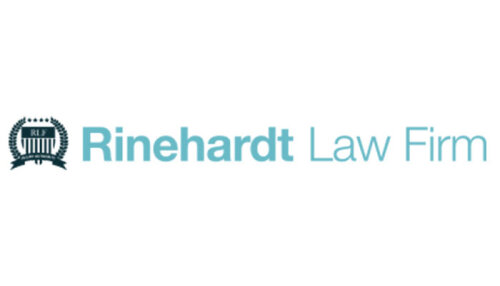Best Truck Accident Lawyers in Ontario
Share your needs with us, get contacted by law firms.
Free. Takes 2 min.
List of the best lawyers in Ontario, United States
1. About Truck Accident Law in Ontario, United States
For residents of Ontario, California, truck accidents involve both federal and state law. Commercial trucks operate under additional safety and insurance requirements compared with passenger vehicles. The combination of federal rules and California regulations shapes how claims are investigated, valued, and resolved.
In Ontario, truck accident claims often hinge on multiple parties and complex evidence. Lawful handling includes preserving electronic logs, maintenance records, driver qualifications, and company policies. Legal counsel can help coordinate evidence collection, expert analyses, and negotiation with insurers.
Large truck crashes require careful evidence gathering and analysis due to complex liability and safety regulations.
Two essential sources of authority you should understand are federal trucking regulations and California state law. Federal rules set minimum standards for safety, insurance, and driver qualifications. California law adds state specific requirements for vehicle operation, insurance, and dispute resolution timelines.
Sources: Federal Motor Carrier Safety Administration (FMCSA) - regulations and guidance; California Code of Civil Procedure and Vehicle Code summaries (official state code resources).
2. Why You May Need a Lawyer
Here are concrete, real-world situations where you will likely benefit from consulting a trucking accident solicitor or attorney in Ontario, United States.
- A tractor-trailer rear-ends you on a highway, causing serious injuries and escalating medical costs beyond your auto policy limits.
- The trucking company blames you for the crash and denies responsibility for the driver, vehicle, or loading practices.
- Your injuries require liens or special medical care, and you need help negotiating with hospital providers and insurers.
- You suspect data loss or spoliation of critical records, such as drive logs or maintenance reports, and need evidence preservation counsel.
- The crash involved multiple liable parties including the driver, employer, and maintenance contractor, creating a complex liability landscape.
- You are dealing with a commercial vehicle with unique insurance requirements or federal- and state-regulated coverage limits.
A trucking-specialized attorney can evaluate applicable insurance coverage, identify all potentially responsible parties, and pursue appropriate damages including medical costs, lost wages, future care, and, where warranted, punitive considerations.
3. Local Laws Overview
Below are 2-3 key laws and regulatory frameworks that govern truck accidents in Ontario, United States. They illustrate the blend of federal and California law that often applies in these cases.
- Federal Motor Carrier Safety Regulations (FMCSA) - 49 CFR Parts 383, 391, 395 - These federal provisions cover commercial driver qualifications, hours of service, and safety standards for motor carriers and drivers involved in interstate commerce. They set baseline requirements that often influence liability and regulatory compliance in accidents.
- Minimum Financial Responsibility for Motor Carriers - 49 CFR Part 387 - This federal rule establishes minimum insurance levels that trucking companies must maintain to operate in interstate commerce. When an accident occurs, insurance coverage and proof of financial responsibility are critical elements of a claim.
- Hours of Service and Electronic Logging Device Rule - 49 CFR Part 395 and the ELD Rule - These rules govern how drivers log hours and rest breaks. The ELD mandate, effective around 2017-2018, requires electronic logs to improve accuracy and accountability in fatigue-related crashes.
On the California side, truck operations and accident aftermath also engage state law and regulatory bodies. For example, California pursues its own rules for vehicle safety, licensing, and civil procedures, in addition to aligning with federal standards.
Key resources to consult for official guidance include:
- 49 CFR Part 395 - Hours of Service
- 49 CFR Part 387 - Minimum Financial Responsibility
- 49 CFR Part 383 - Qualifications of Drivers
For California-specific statutory timelines, see the California Code of Civil Procedure on statutes of limitations for personal injury claims. CCP 335.1 covers general deadlines for civil actions, including some truck accident scenarios.
4. Frequently Asked Questions
What should I do immediately after a truck accident in Ontario, United States?
Move to safety if possible, call emergency services, and obtain medical attention. Document the scene with photos and notes, and gather contact details of witnesses and the trucking company. Contact a trucking accident attorney as soon as possible.
What is the statute of limitations for truck accident claims in California?
Most personal injury claims must be filed within two years of the crash. There are exceptions for certain deaths and other circumstances. Consult a lawyer to confirm deadlines in your case.
How long does a typical trucking case take to resolve?
Most cases settle within 6 to 18 months if liability is clear and medical issues are stable. Complex cases may take longer if there are liens, multiple defendants, or extensive expert work.
Where can I find evidence to support my truck accident claim?
Key sources include driver logs (electronic or paper), maintenance records, dispatch or shipment reports, witness statements, and crash reconstruction data. A lawyer can help preserve this information.
Why is truck data preservation important in a case?
Truck data can prove fault or fault shifts among parties. Spoliation or loss of logs and maintenance records can weaken a claim. An attorney can issue preservation letters to relevant parties.
Can I handle a trucking claim without a lawyer?
While possible, truck accident cases are complex. A lawyer can help with liability theories, expert selection, insurance negotiations, and court filings. Errors can cost you significant compensation.
Should I talk to the trucking company’s insurer at the scene?
Do not provide a recorded statement or sign releases before consulting a lawyer. Insurers may compromise your rights by obtaining information that can be used against you later.
Do I need a lawyer who specializes in trucking accidents?
Yes. Trucking cases involve federal and state regulatory frameworks, multi-party liability, and specialized evidence. A dedicated trucking attorney is better equipped to pursue full compensation.
Is punitive damages a possibility in trucking crashes?
Punitive damages are rare but possible when there is willful misconduct, such as gross negligence or flagrant disregard for safety practices. A lawyer can evaluate if this applies.
What is the difference between a settlement and a trial for trucking claims?
A settlement resolves the claim without a trial, often faster and with predictable compensation. A trial may be necessary to establish liability or to obtain a larger verdict in contested cases.
Do I qualify for compensation if I was partially at fault?
California uses pure comparative fault rules, so you may still recover damages minus your percentage of fault. A lawyer can help determine liability shares and recoverable damages.
Can I recover medical expenses that continue into the future?
Yes, you may recover past and future medical costs related to the crash. An attorney can arrange for life-care planning and future medical projections if needed.
5. Additional Resources
- Federal Motor Carrier Safety Administration (FMCSA) - Sets federal safety standards for commercial motor carriers, driver qualifications, hours of service, and insurance requirements. FMCSA official site
- California Department of Motor Vehicles (DMV) - Oversees licensing and regulation of commercial drivers, including the CDL program and driving records. California DMV
- National Highway Traffic Safety Administration (NHTSA) - Provides national crash statistics, safety campaigns, and research on heavy vehicles and crash prevention. NHTSA
6. Next Steps
- Identify your goals and gather basic facts about the crash, including date, location, parties involved, and injuries. Aim to secure medical records early.
- Consult a trucking accident attorney with experience in California and federal trucking rules. Many offer free initial consultations.
- Preserve critical evidence by sending preservation letters to involved parties and sharing crash-related documents with your attorney.
- Obtain a detailed list of all potentially liable parties, including drivers, employers, maintenance contractors, and cargo loaders.
- Have your attorney evaluate insurance coverage limits and any applicable federal or state regulations impacting liability.
- Discuss a timeline for demand letters, settlement negotiations, and potential filing deadlines with your attorney.
- Decide on a settlement strategy with your lawyer, balancing speed, certainty, and full compensation for medical and lost wages.
Lawzana helps you find the best lawyers and law firms in Ontario through a curated and pre-screened list of qualified legal professionals. Our platform offers rankings and detailed profiles of attorneys and law firms, allowing you to compare based on practice areas, including Truck Accident, experience, and client feedback.
Each profile includes a description of the firm's areas of practice, client reviews, team members and partners, year of establishment, spoken languages, office locations, contact information, social media presence, and any published articles or resources. Most firms on our platform speak English and are experienced in both local and international legal matters.
Get a quote from top-rated law firms in Ontario, United States — quickly, securely, and without unnecessary hassle.
Disclaimer:
The information provided on this page is for general informational purposes only and does not constitute legal advice. While we strive to ensure the accuracy and relevance of the content, legal information may change over time, and interpretations of the law can vary. You should always consult with a qualified legal professional for advice specific to your situation.
We disclaim all liability for actions taken or not taken based on the content of this page. If you believe any information is incorrect or outdated, please contact us, and we will review and update it where appropriate.










